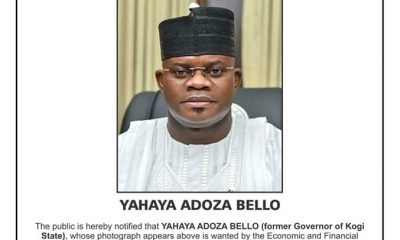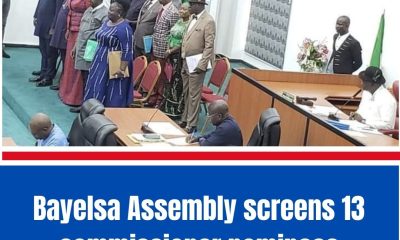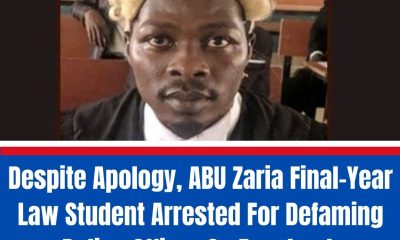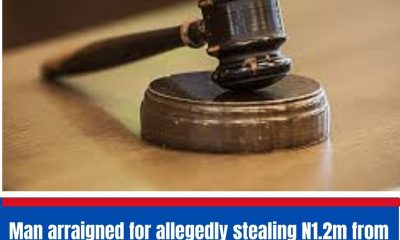News
Nnamdi Kanu ‘Exposes’ Three Appeal Court Errors Before Supreme Court – IPOB

Ibekimi Oriamaja Reports
Mazi Nnamdi Kanu, the imprisoned leader of the Indigenous People of Biafra (IPOB), has petitioned the Supreme Court to order the Muhammadu Buhari-led Federal Government to release him in accordance with the Court of Appeal’s October 13 decision discharging him.
According to Track News, the IPOB leader’s request is contained in the three-ground notice of cross-appeal he filed in the Federal Government’s appeal, which challenges the Appeal Court’s October 13 judgment freeing him.
The pro-Biafran activist requested that Nigeria’s Supreme Court overturn the Appeal Court’s decision “as it relates to issues two, three, and five formulated before the court.”
Nnamdi Kanu’s lawyers also requested that the Supreme Court order the Buhari administration to release him from the custody of the Department of State Service (DSS), where he has been held since June 26, 2021.
He filed a notice of appeal, asking the Supreme Court to overturn the Court of Appeal’s October 28 ruling, which stayed the execution of its October 13 judgment.
Nnamdi Kanu argued in ground one that the Appeal Court erred in law when it stated that “the main purpose of a charge is to give the accused person a notice of the case against him, and that is why the law is that an omission in a charge will only be fatal if it does not put an accused person on proper and sufficient notice of the case against him to enable him to prepare adequately for his defense.”
without regard for the mandatory requirements of the laws that limit the Federal High Court’s criminal jurisdiction to criminal offenses committed within the court’s jurisdiction
In ground two, he claimed that the Appeal Court committed a legal error by ruling that “as long as the appeal against the proscription of IPOB has not been determined, the order of proscription is still valid and subsisting,” resulting in a miscarriage of justice.
In ground three, Nnamdi Kanu argued that the Court of Appeal “erred in law when it held that it is only after evidence has been adduced by the prosecution in proof of its case, and the proof of evidence is thus admitted in evidence, that the competency or otherwise of the proof of evidence/charge can be attacked; and that as such, it was premature to make a pronouncement on the relative strength of proof of evidence before the commencement of trial, and thus occasioned
-

 Sports4 days ago
Sports4 days agoFA Cup: Man Utd suffer fresh triple injury blow ahead Coventry clash
-

 News7 days ago
News7 days agoPort Harcourt company gifts plot of land to Law Graduate, Anyim Veronica
-

 News7 days ago
News7 days agoJUST-IN: EFCC declares Kogi ex-gov, Yahaya Bello wanted
-

 Politics7 days ago
Politics7 days agoBayelsa Assembly screens 13 commissioner nominees
-

 Business4 days ago
Business4 days agoI met N13bn IGR per month but we are now seeing N27bn – Fubara
-

 News5 days ago
News5 days agoDespite Apology, ABU Zaria Final-Year Law Student Arrested For Defaming Police Officer On Facebook
-

 Politics4 days ago
Politics4 days agoSERAP To Govs, Wike: Account For Trillions Of FAAC Allocations
-

 Crime7 days ago
Crime7 days agoMan arraigned for allegedly stealing N1.2m from dead man’s bank account




















